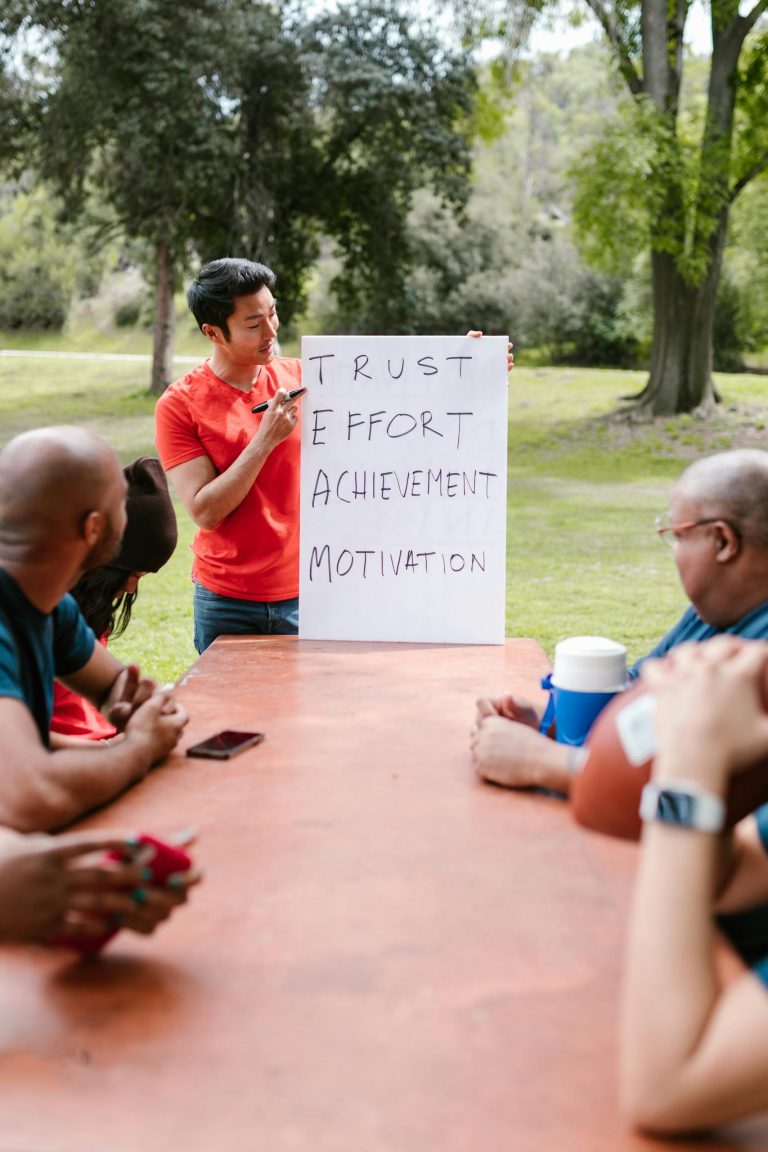Balancing Empathy and Accountability as a Leader
Picture this familiar scenario: A valued team member repeatedly misses deadlines. As a leader, you’re torn. Do you extend empathy, understanding that personal struggles might be impacting performance? Or do you firmly enforce accountability and insist that deadlines be met regardless of personal circumstances? Leaders frequently find themselves wrestling with this dilemma—caught in the tension between empathy and accountability, uncertain of how to navigate these seemingly opposing forces.

Understanding how to balance these two critical aspects of leadership is not just an optional skill—it’s essential for today’s effective leaders. In this article, you’ll discover why empathy and accountability are not mutually exclusive, how they coexist productively, and what you can practically do to integrate these qualities in your leadership approach.
Moving Beyond Either/Or Thinking
Many leaders believe they must choose between being empathetic and holding their teams accountable. This binary thinking suggests one must adopt the role of either compassionate caretaker or uncompromising taskmaster. But this is a false choice. Effective leadership requires integrating empathy and accountability seamlessly, recognizing that empathy without accountability can lead to complacency, while accountability without empathy risks burnout and disengagement.
To rise above this false dichotomy, leaders must first understand empathy clearly. Empathy involves genuinely understanding and resonating with the experiences and emotions of your team. It means putting yourself in their shoes long enough to understand their realities deeply, fostering trust and connection.
However, accountability is equally crucial. Accountability is not about being punitive or authoritarian. Instead, it’s about setting clear expectations and holding individuals to standards that foster growth, learning, and team achievement. It’s about ensuring commitments are honored, tasks are completed, and that there are transparent consequences—for both success and shortcomings.
Practical Strategies for Balancing Empathy and Accountability
- Communicate Intentionally
Effective communication is foundational to empathetic leadership. It involves deep listening, thoughtful questioning, and regular follow-ups. Leaders must create environments where employees feel heard and valued. Regular check-ins and conversations that validate employees’ experiences are integral in demonstrating empathy without sacrificing accountability.
- Respond Thoughtfully
Thoughtful responses are balanced and measured, neither overly indulgent nor overly harsh. For instance, if an employee misses deadlines due to personal issues, a thoughtful response may involve temporarily altering their responsibilities, or discussing alternative arrangements. Leaders must avoid knee-jerk reactions, opting instead for responses that carefully balance empathy with clear expectations and accountability.
- Set Healthy Boundaries
Sustaining empathy over time demands clear boundaries. Leaders who understand their role and set professional limits protect themselves from emotional fatigue. Boundaries might include clearly defined professional responsibilities, knowing when to refer employees to additional support like HR or counseling, and maintaining a level of professional distance to prevent burnout.
- Develop Self-Awareness
Developing self-awareness allows leaders to manage their emotional reactions effectively. Leaders must recognize their own emotional triggers and biases that could cloud judgment. By regularly reflecting on their actions, responses, and beliefs, leaders avoid projecting their own emotional issues onto others, paving the way for genuine empathy and consistency in accountability.
Avoid Common Pitfalls
One common pitfall is excessively reducing accountability in response to empathetic feelings. When leaders become overly lenient, they unintentionally breed reliance and undermine personal growth. Empathy should never erase accountability; rather, it should inform how accountability is expressed. By clearly communicating expectations and maintaining consistent standards, leaders support employees’ growth while still acknowledging their humanity.
Another pitfall is failing to show sufficient empathy, which leads to a disengaged team. Accountability without empathy may deliver short-term results, but it produces long-term relational damage. Leaders must ensure accountability is conducted with respect and understanding, always mindful of employees as whole people whose lives extend far beyond workplace responsibilities.
Balancing empathy and accountability ultimately fosters a resilient, engaged, and high-performing workplace. According to a Gallup report, leaders who practice empathy alongside accountability see higher productivity, increased employee satisfaction, and reduced turnover rates.
Integrating Empathy and Accountability: A Continuous Journey
Balancing empathy and accountability is an ongoing journey, not a one-time event. It involves continuously refining your approach, learning from experiences, and staying open to feedback. Leaders who successfully navigate this balance reap significant rewards: stronger relationships, a more motivated team, and a healthier, more productive workplace.
Final Thoughts: Leading with Heart and Strength
Empathy and accountability aren’t just compatible; they’re complementary. The most effective leaders understand that combining these elements leads to holistic leadership that inspires trust, motivates teams, and achieves sustainable results.
As you reflect on your own leadership style, ask yourself: Are you balancing empathy and accountability effectively? Where might you improve? By intentionally integrating these qualities, you can create a culture where everyone feels genuinely seen and supported, yet firmly understands and upholds their responsibilities.
Want to explore more about empathy and accountability in leadership? Consider joining our program “The Art of Management: Master Your Role”, which delve deeper into practical strategies for empathetic accountability.
About the Author
Michael Reed serves as Senior Leadership Consultant and author at MajorLeader. Drawing from his background in organizational psychology and executive coaching, Michael develops actionable insights and impactful learning experiences tailored to today’s complex leadership environments. He is committed to helping leaders navigate change confidently and compassionately.




